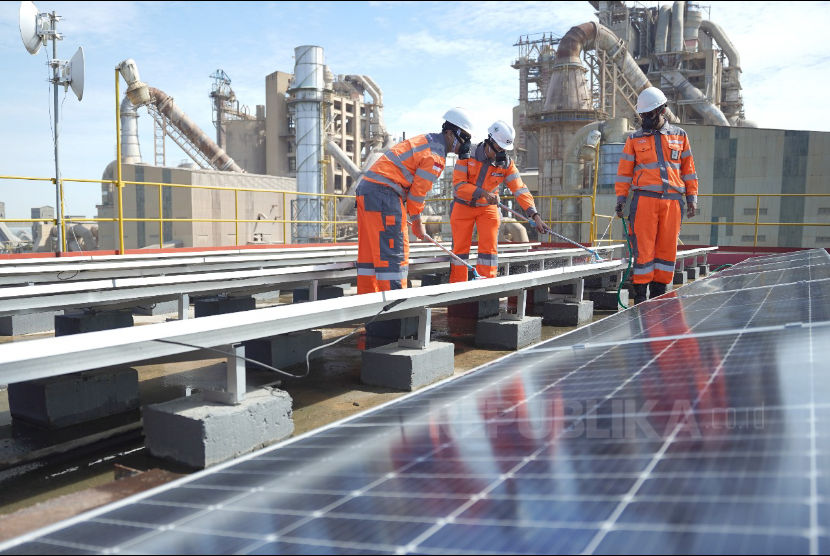REPUBLIKA.CO.ID, JAKARTA -- Director of the Department of Sharia Economy and Finance (DEKS) of Bank Indonesia (BI) Rifki Ismal views the importance of the energy sector in the development of the sharia economy in Indonesia. Although Indonesia has shown significant progress in the halal industry, the energy sector still has great potential that has not been fully explored.
As a country with abundant natural resources, Indonesia should not only focus on halal food and Muslim-friendly tourism, but also expand its reach into the energy sector.
“We have the potential to develop renewable energies that comply with Sharia principles, such as solar, wind, and biomass energy,” he explained at the International Seminar “Optimizing The Global Halal Industry Ecosystem: Leveraging Research and Innovation for Resilient Economic Growth” in Jakarta, Thursday (31/10/2024) evening.
Today, he said, many other countries have succeeded in harnessing renewable energy within the framework of sharia economics. By adopting this model, Indonesia can not only improve energy resilience, but also contribute to global efforts to tackle climate change.
“Renewable energy is not only a good option, but it is also our moral obligation as part of the global community,” Ismal added.
One of the challenges faced is the lack of cooperation between the public and private sectors to develop sharia-based energy projects. Collaboration is therefore essential to create an ecosystem that supports innovation and investment in the energy sector.
“We need to build partnerships between governments, energy companies, and sharia financial institutions to create sustainable solutions,” he said.
In addition, digitalization also plays a key role in the transformation of the energy sector. By leveraging digital technologies, such as IoT and data analytics, companies can improve operational efficiency and reduce costs.
“We are already seeing a lot of innovation in energy management systems that utilize digital technologies, and this should be applied in the context of sharia,” he explained.
Ismal also stressed the importance of education and training to improve human resource capacity in the field of sharia energy. Indonesia also needs to prepare the young generation to engage in this sector by providing the necessary knowledge and skills.
“By combining the advantages of natural resources, innovation, and technology, we can create energy solutions that are not only economically beneficial but also aligned with Islamic values,” he said.



